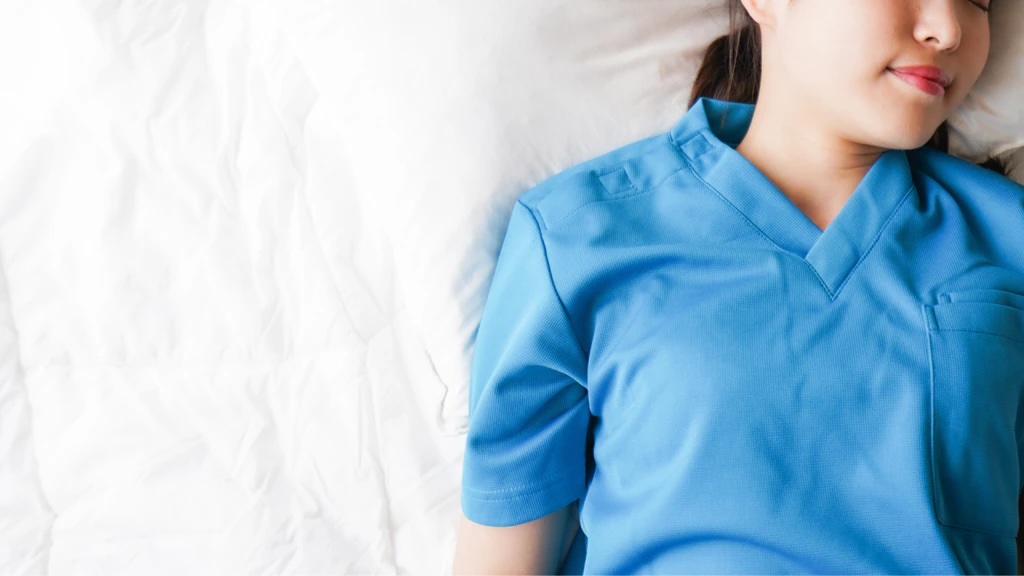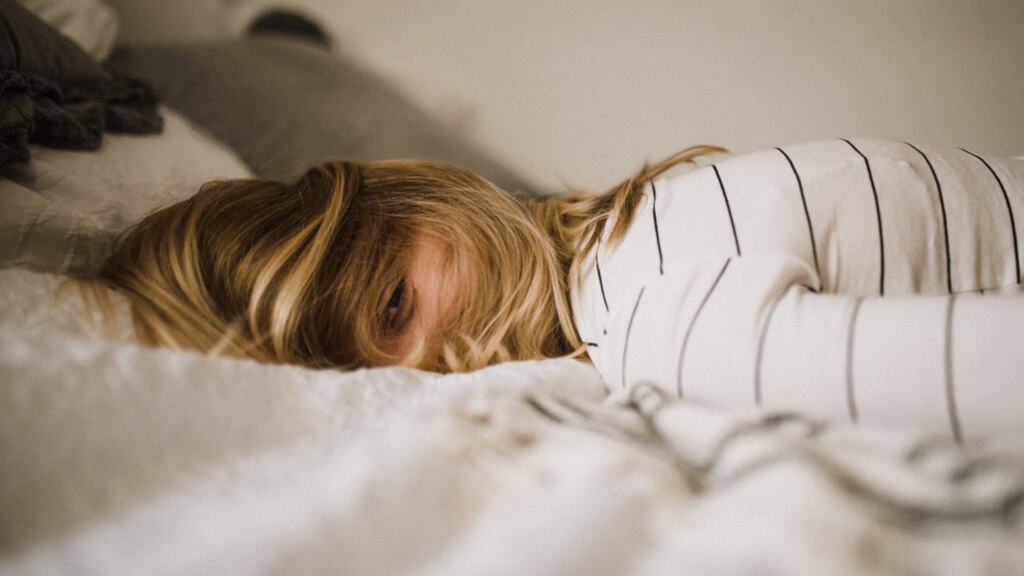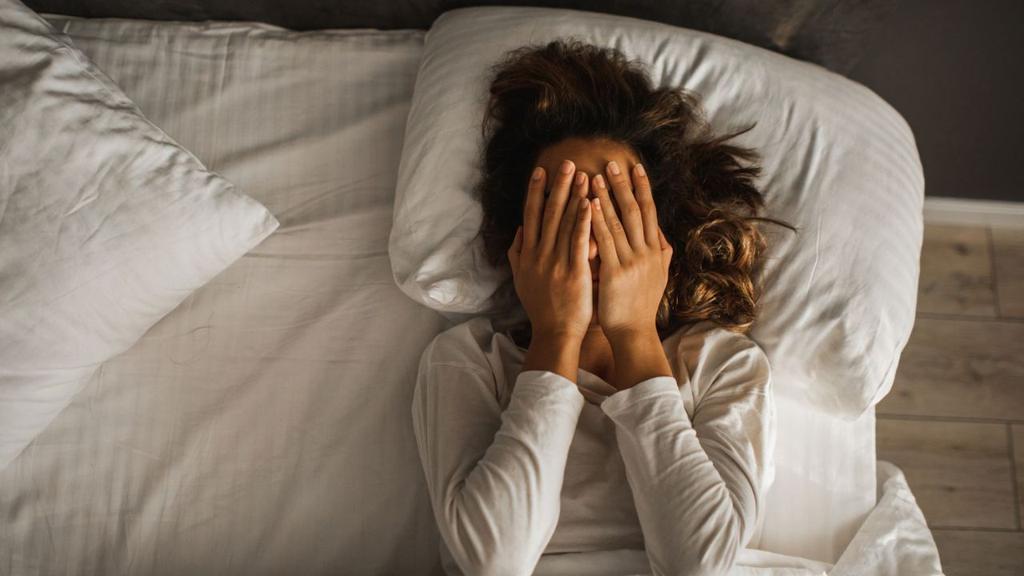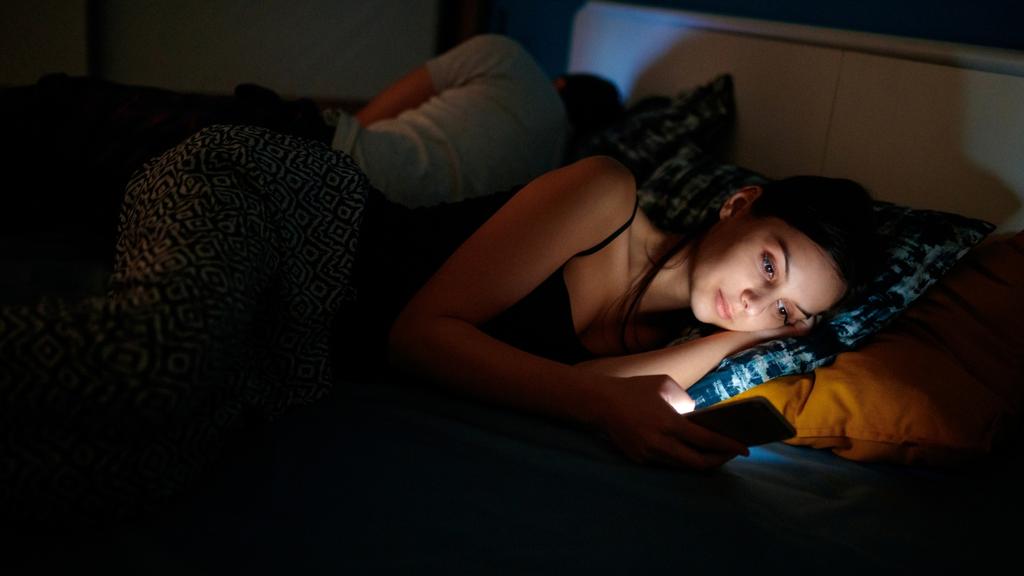
How nurses can sleep better, with this 4 step plan. Image: iStock
Nurses, the backbone of our medical system are chronically sleep deprived. Sleep expert Olivia Arezzolo shares her tips to help nurses get the decadent dose of rest and rejuvenation that they deserve.
Nurses are the backbone of our medical system. But this self-sacrifcing group of individuals who hold our lives in their hands are chronically sleep deprive, and underpaid, and need a decadent dose of rest.
If you need convincing, the statistics speak for themselves. 2022 research indicates that 75 per cent of health professionals experience poor sleep quality. Similarly, a 2021 survey found that 45 per cent of health care professionals were suffering from moderate or severe insomnia; and another 36 per cent were at risk, which leaves only 19 per cent sleeping well.
Of those surveyed, nurses were the most likely to report sleeping problems — even more so than doctors and paramedics.
Sleep length for most nurses is also concerningly short too. A 2021 study found that 86 per cent sleep less than six hours a night. While many nurses will shrug this off (they have others to care for, after all!) it is important to know this has severe consequences.
A 2003 study found that sleeping four hours each night for 14 nights produces the same performance deficits, think poor inattention, memory loss and poor judgement, which is the equivalent of two nights of complete sleep deprivation.

Sleep deprivation causes poor inattention, memory loss and poor judgement. Image: iStock
Shift working nurses are at greater risk
With shift working causing chronic circadian rhythm disruption, it’s no surprise that a 2021 report by Worksafe Victoria found 30 per cent of healthcare workers are at risk of shift work disorder, a form of insomnia characterised by excessive daytime sleepiness and an inability to sleep properly.
As a result, this also means 30 per cent of shift workers are likely to suffer the consequences of sleep deprivation, such as anxiety, brain fog and memory loss.
Even without considering long-term impacts of shift work, in the short term, there is cause for concern too. The Worksafe report also noted for shift workers on their first night, 70 pe cent of health care workers had been awake longer than 16 hours.
Like chronic lack of sleep, simply being awake too long, even just for the day, places us at severe risk of error. A 2000 study found that being awake over 17 hours compromises our cognition as much as having a Blood Alcohol Concentration of 0.05.

Being awake over 17 hours compromises our cognition. Image: Unsplash
What the consequences?
Insomnia is much more prevalent for nurses, especially for shift workers. Road accidents too. A study found that 75 per cent of all motor vehicle accidents, and 80 per cent of near crashes, occured after night shift.
Lastly, and sadly, medical error. The Worksafe report above found such mistakes are estimated to be 30 per ent higher for those working night shifts. However, even the average nurse, who is chronically sleep deprived, is at risk, and so are their patients.
A 2020 study found nurses with poor-quality sleep are three times more likely to make a medication error, compared to those who are well rested.
While these statistics are alarming to say the least, it must be emphasised that this is not the fault of the nurse. Rather, the pressures to work long hours, sleep at irregular times and manage with no solid solution is where the problem lies.

Nurses with poor-quality sleep are three times more likely to make a medication dosage error. Image: Getty.
What is the solution?
Ideally, a strategy to address this healthcare crisis should come from the top down, as in, government. However, if you are a partner, parent or daughter of a nurse, here are four recommendations to improve sleep that can be implemented immediately.
1. Practice a quality bedtime routine.
Though often not sleepy when arriving home, it’s absolutely imperative to have a solid bedtime routine which helps the body produce melatonin.
2. Keep the room as dark as possible.
Upon returning home use blackout blinds, an eye mask, and avoid using blue light. Again, this supports the synthesis of our sleepiness hormone, helping us fall and stay asleep.

It’s important to restrict blue light, so that you sleep. Image: iStock
3. Expose yourself to light in the morning.
Whenever you wake up you should expose yourself to light because light exposure naturally enhances energy, and especially for those with chronic sleep loss (you).
4. When you can, take time for you.
Nurses, like my mum, are givers, and constantly thinking “what can I do for others?”. While this is heartfelt and kind, it’s important to prioritise your own needs too. A morning meditation, a weekend yoga class, or a sleep retreat and allocating space for your wellness will replenish some much-needed sleep, reduce the risk of burnout, and help you feel that little bit more upbeat.
Nurses, we love you, we respect you, and we’d love you to get the sleep you know, love and deserve. Hopefully now, that process will be that little bit easier.
Originally featured on Body and Soul
+ show Comments
- Hide Comments
add a comment